Austal USA lands US Navy contract to build additional ship in Mobile
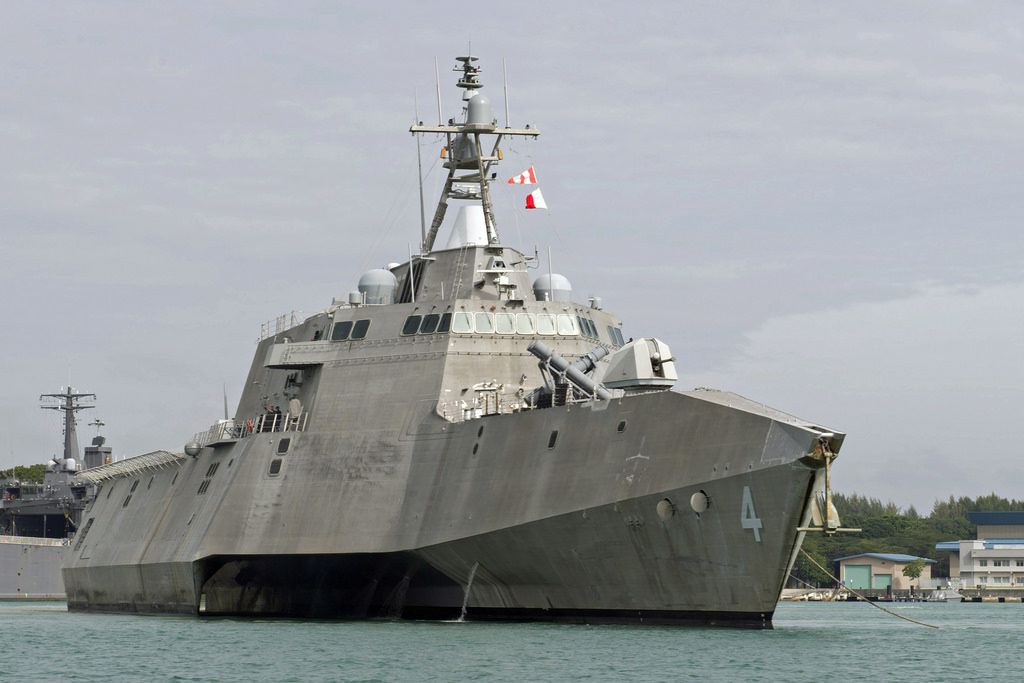
Austal USA has been awarded a construction contract to build an additional Independence-variant Littoral Combat Ship, its fifteenth ship in the class, for the U.S. Navy. The contract is an economic boon for the Yellowhammer State as Austal USA will build the ship at its Mobile, Ala. headquarters and manufacturing facility, which employs 4,000 people and includes a supplier network of over 2,200 businesses across 43 states. “When Alabama’s businesses succeed, Alabamians succeed,” said Gov. Kay Ivey of the newly awarded contract. “Austal USA is a 21st-Century, technology-driven, employer which provides good wages and good opportunities for its employees. Austal is critical to our state’s high-tech military and aerospace manufacturing sector. Ivey continued, “By adding to its ship order, the U.S. Navy is signaling its confidence in Austal’s products and the employees who build it. Alabama has a skilled workforce that is known for producing high-quality goods. I look forward to more announcements like this one from Austral, as well as other companies that do business in Alabama, because of our trained workforce and our positive business environment.” Austal would not reveal the value of the contract, but confirmed the value is under the congressional cost cap of $584 million per ship. “We’re honored to be awarded this contract in such a highly competitive environment,” said Austal USA President Craig Perciavalle. “This further supports the Navy’s recognition of Austal as a key component in building their 355-ship fleet, which is a testament to the hard work and commitment of our talented employees and dedicated supplier network.” The littoral combat ship has been identified as a key component to the Navy’s ability to gain sea control through distributed lethality. Austal is the fifth largest shipbuilder in the United States
Bradley Byrne: Maintaining a Navy
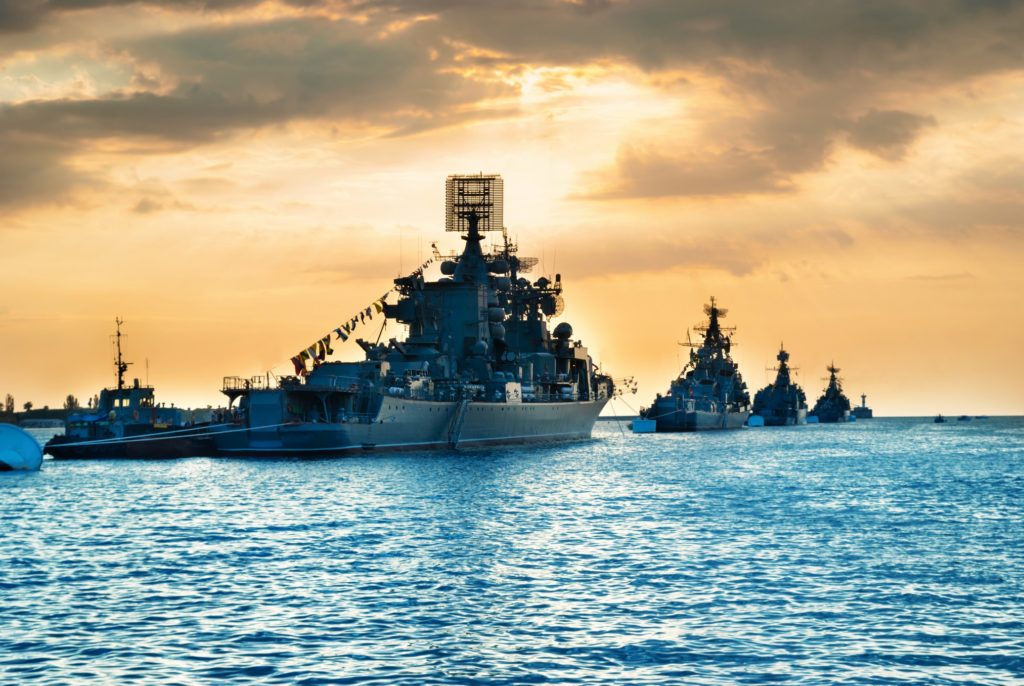
The shipbuilding industry has always been critically important to those of us living on and around the Gulf Coast. Our area has a proud tradition of building warships and supporting the military. For example, we build the Littoral Combat Ship and Expeditionary Fast Transport at Austal in Mobile. Important military vessels are also built at Ingalls Shipbuilding in Pascagoula and Eastern Shipbuilding in Panama City. Given the importance of shipbuilding to our area, it should not come as a surprise that I am a huge advocate of the United States Navy, Marines, and Coast Guard. But, my support is about much more than just supporting the local economy. I recently had the opportunity to speak with two important nationwide organizations: the Surface Navy Association and the Amphibious Warship Industrial Base Coalition. In my talks with these organizations, I spent much time outlining why it is in the best interest of the United States to build up our fleet. The Constitution gives Congress the express authority to “raise” an Army, but it says Congress is to “provide and maintain” a Navy. This is an important distinction that makes clear our Founding Fathers’ intention for our country to consistently have a fully capable Navy fleet. One of the top reasons for having a strong Navy relates directly to our economy. 90% of world trade goes by sea and at least four million jobs in the United States are connected to sea trade. Who helps keep these sea lanes open and free for commerce? The United States Navy. Over 80% of the world’s population lives within 60 miles of the sea. That is a pretty remarkable statistic that demonstrates just how important it is for the United States to have the ability to freely navigate the sea and respond to issues. For example, when a disaster like the tsunamis in Japan or the earthquake in Haiti occurs, the world needs the United States and our Navy to respond and provide assistance quickly. A lesser known issue relates to the world’s communication systems. 95% of all voice and data are transferred under the ocean by cable. It would not take much for our adversaries to disrupt these cables and bring a lot of our daily lives to an abrupt stop. In Congress, I am honored to serve on the Subcommittee on Seapower and Projection Forces. This position allows me to be involved in all discussions about the future of our nation’s fleet and the need to project strength around the globe. We currently have only 274 ships, and a recent Navy Force Structure Analysis found the need for 355 ships in order to meet the most critical demands. That is why I am so pleased President Trump has made clear his support for a 350 ship fleet. Now, I am proud to be a staunch proponent for less federal spending, but I believe we can make the investments needed to build up our military while also making cuts in other, less critical areas. In other words, we can be fiscally responsible at the same time we are building up our Navy. In fact, President Thomas Jefferson was one of our country’s greatest advocates for a smaller government and less spending, but even he understood the importance of maintaining a strong Navy. During his presidency, he grew the Navy to protect the flow of commerce around the globe. So, I think we can, and we must, make real progress in building up our Navy. The safety and security of the American people and the success of the economy depends on nothing less. • • • Bradley Byrne is a member of U.S. Congress representing Alabama’s 1st Congressional District.
U.S. Navy’s next Littoral Combat Ship to be named USS Mobile
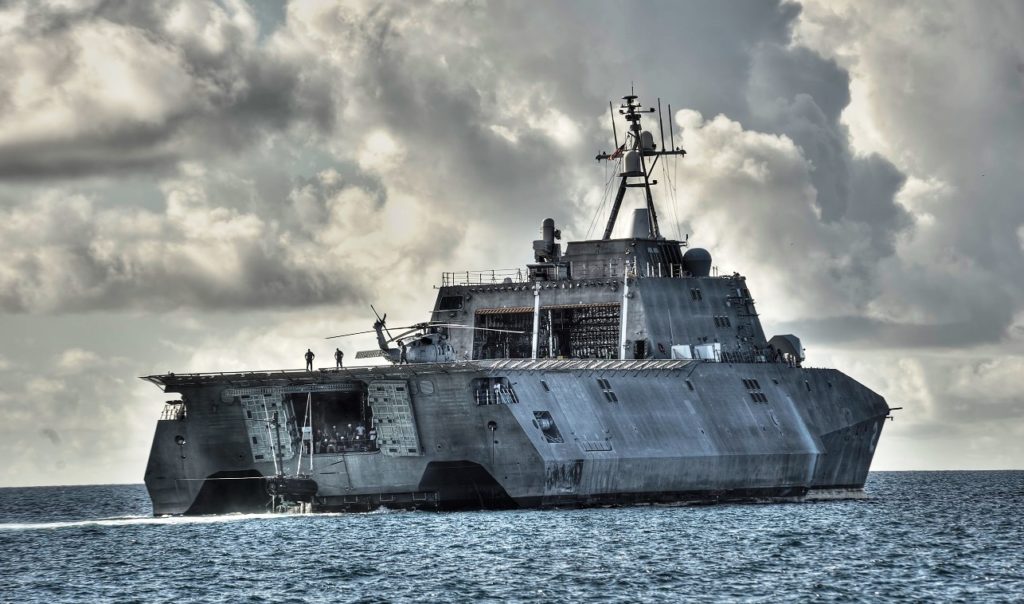
Secretary of the U.S. Navy Ray Mabus announced on Thursday, the next Independence-variant Littoral Combat Ship (LCS) will be named USS Mobile (LCS 26) to recognize the Alabama city’s significant contribution to Navy ship building. “I can’t think of a better way to recognize the superior craft and workmanship Mobilians put into each of these ships,” Mobile Mayor Sandy Stimpson said. “A little piece of Mobile goes into each of the Independence Class LCS ships made right here at Austal, but this ship is especially significant because it marks us as a regionally important U.S. city with global impact and magnificent workers. I have no doubt Austal will produce another incredible warship worthy of the name Mobile that will not only meet the standards of today but will adapt to the evolving needs of the future. “ Stimpson sent a letter to Mabus last year requesting the Navy consider naming a future LCS the USS Mobile as a tribute to the City of Mobile and its citizens “who put their heart and soul into every warship they build.” Alabama 1st District U.S. Bradley Byrne was present for the announcement ceremony Thursday in Washington, D.C.. “Our area takes such pride in building these fine ships, just the latest vessel in Mobile’s long history of shipbuilding,” said Byrne. “I know the spirit and patriotism of Mobile will be encapsulated in this ship.” Byrne continued, “I appreciate Secretary of the Navy Ray Mabus for working with us to make this possible, and I look forward to one day standing in the Mobile waterfront to christen and commission this fine ship.”
Bradley Byrne: Reflections on China

China is the largest country in the world with a population of approximately 1.4 billion people, and I recently had the opportunity to travel there with some of my congressional colleagues. I want to share a few of my takeaways with you. We must realize that the key to a successful relationship with China is the proper mix of cooperation and a firm assertion of America’s priorities. This mix is particularly important in matters of the economy and trade, as well as with security issues. The United States and China are now the number one and number two countries in the world economically. Over the last 20 years, the Chinese economy has grown at a rate over 10%. Even in the recent economic slowdown, they have seen growth of nearly 7%. Our two countries are competitors, and at the same time, beneficiaries when it comes to trade. We are China’s number one export market while China is a major importer of U.S. goods and services. As more people in China enter the middle class, demand will increase for higher-end products that the United States can and does provide. In addition, we receive more affordable consumer goods from China, which helps keep inflation low. We have a number of local ties to China. China depends on the United States for a number of agricultural imports, and many of those products are produced at Alabama farms. Also, Continental Motors, which has an operation at Brookley Aeroplex in Mobile, is a U.S. subsidiary of a Chinese company, and they employ several hundred people right in our backyard. Unfortunately, the Chinese have shown they will do anything to win, including spying and cheating. China has a track record of being a bad actor when it comes to trade, especially as it relates to currency manipulation and dumping products into the international market. These issues are especially harmful to the steel industry, which is important to our local economy in Southwest Alabama. We must have a more aggressive and pro-American strategy to address these issues relating to trade and the economy. At the end of the day, no trade is preferable to unfair trade that negatively impacts American workers. The relationship with China is also important from a security standpoint. Over the last decade, China has significantly expanded its military capabilities, and this is going to only increase as time goes on. China is a nuclear country, and it is becoming a more traditional military force, especially when it comes to its navy, air force, and missile capability. One of the reasons I have pushed so hard for the United States to expand our own naval fleet, including the Mobile-built Littoral Combat Ship, is that we must project American force in the western Pacific in response to Chinese naval, air, and missile build-up. Over five trillion dollars in goods move through sea lanes in the South China Sea, and now China is trying to exert control over the region by claiming islands that are also claimed by other nations. While the sovereignty and ownership is being decided in international tribunals, we cannot let China simply exert rights and control over this important area. Clarity and predictability in our policy and our rules of engagement are critical when it comes to interacting with the Chinese in this important maritime environment. On the other hand, China can prove to be an important ally in both the fight against terrorism and in blocking North Korea’s threats to use nuclear and other weapons against South Korea, Japan, and even the western part of the United States. Ultimately, the key to the relationship between our two countries is balance. The United States must continue to engage with the nation and search for areas where we can work together, but we should always stand our ground when it is in our best interest. • • • Bradley Byrne is a member of U.S. Congress representing Alabama’s 1st Congressional District.
Bradley Byrne: Defense bill blocks attempt to cut Mobile shipyard
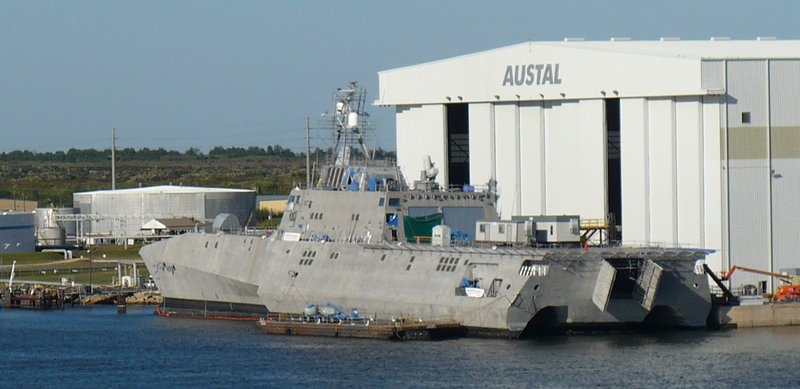
Southwest Alabama has a proud military tradition. Our area is home to a large number of veterans. The Coast Guard has a strong presence here. Important military vessels are constructed up and down the Gulf Coast. These are all things we take great pride in. That’s why it was so frustrating last December when Secretary of Defense Ash Carter announced his plans to cut the Littoral Combat Ship (LCS) program from 52 total ships to just 40. The LCS is the Navy vessel built at Austal USA in Mobile. Over 4,000 men and women are directly employed by the shipyard. Two different versions of the LCS are currently built by Austal in Mobile and Marinette Marine in Wisconsin. The Secretary also proposed eliminating one of the versions entirely in a “downselect” to a single builder. Navy officials testified before Congress that this would result in one of the shipyards closing entirely. I immediately went to work to make sure his efforts would not be successful. When the President’s budget was released and included the proposed cuts, I doubled down in my efforts. Ultimately, it is the decision of Congress, not a lame-duck President and a lame-duck Secretary of Defense. Let me be clear up front: I don’t support the LCS program simply because it is built in our area. I support the program because the Navy has made clear time and time again they like the LCS, and they need the ship in order to fulfill their mission. If these ships weren’t critical to the Navy, then I wouldn’t have a leg to stand on. So, I set out to stop these proposed cuts. In Congress, I serve on the House Armed Services Committee, which has jurisdiction over our nation’s entire military. Each year, the Committee must pass legislation known as the National Defense Authorization Act (NDAA). This is the bill that sets policy and authorizes funding for military operations and programs. As part of his efforts to cut the program, President Obama’s budget only requested funding for two Littoral Combat Ships this year, instead of the required three ships. My goal was [to] make sure the NDAA included full funding for three ships while also stopping the cuts from moving forward. I’m pleased to report that our efforts were successful, and the NDAA includes funding for three ships. I also introduced an amendment to prevent the Pentagon from following through with their plans to eliminate one of the two builders. My amendment was adopted without any opposition. Ultimately, the NDAA passed the full Armed Services Committee early Thursday morning after more than fifteen hours of debate. In a sign of the truly bipartisan nature of our committee, the bill passed by a vote of 60 to 2. This was a resounding victory for all the men and women who work at the Austal shipyard in Mobile. This means both Republicans and Democrats agree that President Obama is wrong for trying to cut the LCS program, which is so important to the Navy. More challenges may arise, but I promise to keep fighting for the LCS, the Navy, and the people who work at that shipyard. Most importantly, I promise to keep fighting for Southwest Alabama and our proud military traditions. • • • Bradley Byrne is a member of U.S. Congress representing Alabama’s 1st Congressional District.
Bradley Byrne: Supporting strong a Navy and saving our jobs
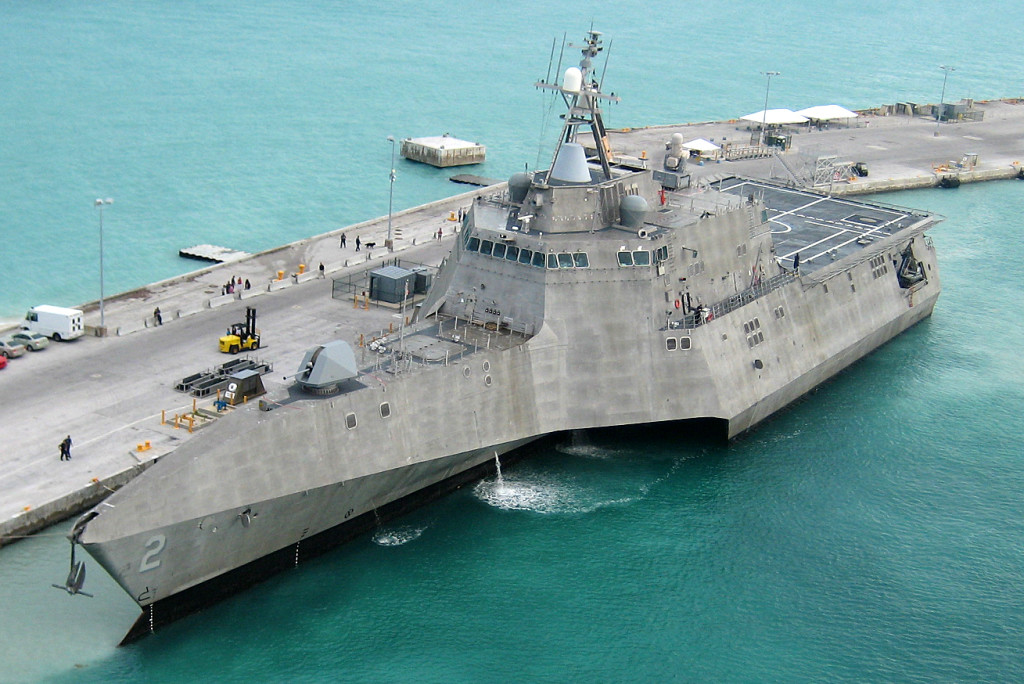
President Barack Obama just doesn’t get it. From ISIS to Russia to China to Iran, our nation is facing a wider range of threats than almost any time in our nation’s history. Despite these threats, the budget President Obama sent to Congress last week proposed making cuts to important military programs. One of the programs President Obama wants to cut is the Littoral Combat Ship (LCS). As you may know, these are the ships we build at the Austal shipyard in Mobile. All along, the plan has been to build 52 Littoral Combat Ships, but the president has now proposed cutting the total to only 40 ships. The president proposed these cuts against the wishes of our Navy leaders. In fact, just last year, Secretary of the Navy Ray Mabus said, “We have a need, a demonstrated need, for 52 of these small surface combatants.” So, I have a very clear message to the over 4,000 men and women who work at the Austal shipyard and their families: This proposal from a lame-duck President and his lame-duck Secretary of Defense will not stand. I strongly support the LCS program and the work done at Austal because I know how important the shipyard is to our local economy, but that is not the main reason I have been so outspoken and worked so hard to push back against attempts to cut the program. The main reason I support the LCS is because I know how important this class of ship is to keeping our Navy strong and our nation safe. Under President Obama, we have seen our Navy shrink to levels that are incredibly alarming. Making matters worse, the LCS is a unique ship that is designed to fill a role that no other ship in the fleet can fill. The LCS is designed for littoral, or shallow, waters. The ship is especially important in the Pacific region where China is creating man-made islands in an attempt to take control of international waterways. Larger Navy vessels simply cannot sail in those waters, but the LCS is designed exactly for that type of mission. It is also important to point out that the LCS program is continuing to mature and develop. Last week, the Mobile-built USS Coronado completed an important survivability test that allowed the ship and her crew to demonstrate their ability to handle and respond to a wide range of challenges. The Navy pointed out that the LCS not only passed but exceeded the survivability requirements. The LCS is also a rare military program that has actually seen costs decrease over time. In these tight budget times, this is an incredibly important quality. The LCS is a very affordable ship that can help us re-establish our naval capacity. I’ve seen these ships being built, I’ve talked to the Navy leadership, and I’ve visited with the sailors who are actually working on these vessels. They all support the LCS and the vital role it plays in the Navy’s fleet. If the LCS wasn’t important to our national security strategy and Navy leaders weren’t so outspoken in support of the ship, I wouldn’t have taken up this fight, but I know how devastating it would be for our entire naval fleet to cut back on the LCS program. I will fight every day to make sure that our Navy has the resources it wants and needs to protect our nation and keep sea lanes open. The LCS is a critical part of that mission. • • • Bradley Byrne is a member of U.S. Congress representing Alabama’s 1st Congressional District.
Navy ship christened in Alabama for former Arizona Rep. Gabrielle Giffords
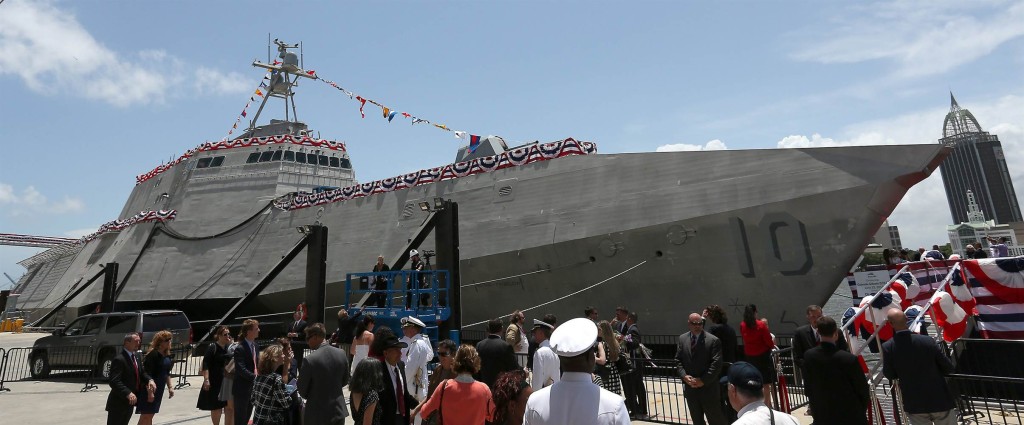
Former U.S. Rep. Gabrielle “Gabby” Giffords of Arizona had a Navy vessel named in her honor during a ceremony at a Mobile, Alabama, shipyard Saturday afternoon. Giffords joined others including Jill Biden, wife of Vice President Joe Biden, as the USS Gabrielle Giffords was christened in coastal Alabama. The 419-foot ship was built at the Austal shipyard and is the Navy’s 10th littoral combat ship designed to operate in shallow waters near the coast. Giffords was badly wounded in a 2011 shooting that left six dead and 13 injured in Tucson. The Democrat left Congress and later founded an organization that supports gun control. “In congress I was proud to support our armed forces. I love the Navy — I even married a sailor,” Giffords said as she kissed her husband Mark Kelly, a retired Navy captain and astronaut who stood by as she addressed the crowd. “Thank you to all who built this ship. She’s stealthy; she will defend freedom around the world.” Giffords was chosen as the vessel’s namesake because of the characteristics she exemplified after the attack, officials said. “Courage comes in many, many forms — physical, mental, spiritual and political. Gabby has truly modeled courage and resilience,” said Vice Admiral Philip Cullom, deputy chief of Naval operations for fleet readiness and logistics. Biden was the ship’s sponsor and Cullom said her spirit will guide the vessel while it is in service. Biden called the ship a feat of engineering excellence. During his speech, Kelly paused to thank Biden for attending the ceremony as she mourns the death of her stepson former Delaware Attorney General Beau Biden. Biden, a Delaware National Guard major who spent a year in Iraq and was awarded a Bronze Star, died May 30 after a two-year battle with brain cancer. “Know that Beau was the kind of person that made us all deeply hopeful for our country’s future. He did that for Gabby and for me,” Kelly said. “As a military mom, there is no one I would rather be with than you here today, the ones who stepped up to serve,” Biden said, also adding, “Gabby represents the same qualities the Navy embodies.” Republished with permission of the Associated Press.


